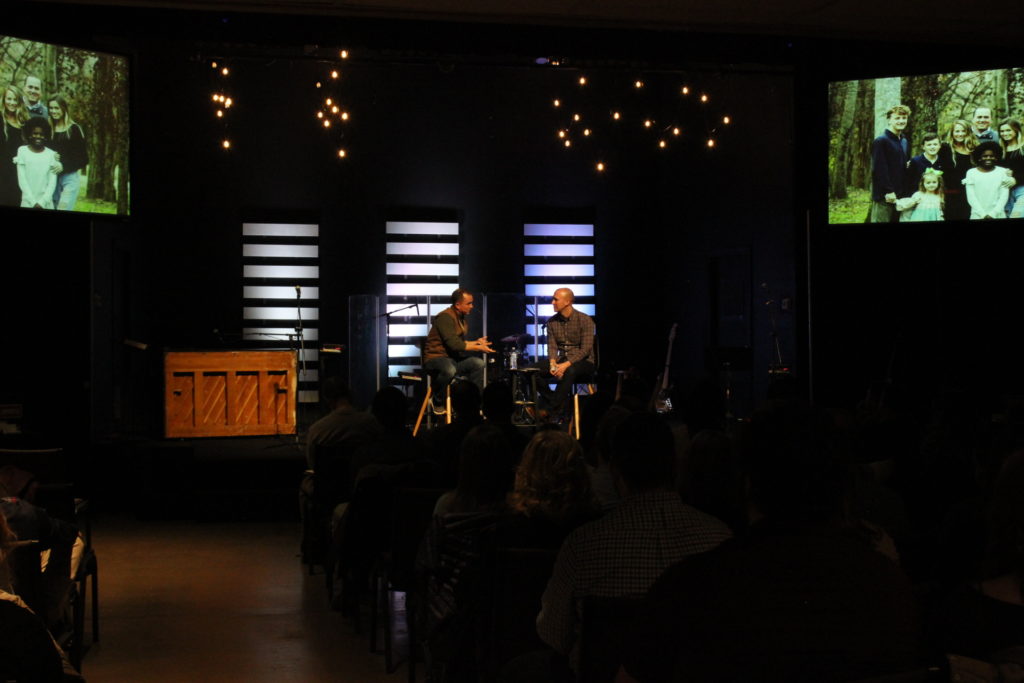When I was younger, I thought the people writing on topics were “experts” who had it all figured out. But after years of working in the publishing industry and getting to know online heroes, I’ve learned I was wrong. It turns out that every blog or book was written by people still trying to figure out their topic — still a work in progress.
That “still trying to figure it out” position is certainly the place from which I write this blog on racial justice. When I was asked to do this a couple of years ago, my first inclination was to run and hide, not write and post. As anyone engaged in the discussion understands, the issues surrounding racial justice are complex, the grace shown to one another is often low, and the progress slow.
Yet here I am writing. I’m writing because Christians are called to speak to issues their God has addressed as well, issues he cares about. And he certainly cares about racial justice. He cares about George Floyd, how he was horribly treated, and the countless issues that are connected to everything that is going on in America right now in 2020. And the church is called to lean into these issues as his ambassadors. Although I write from a “majority culture” perspective, I’d like to share seven ways I’m pursuing racial justice that I’d ask you to consider as you pursue the same.
Pursue racial justice prayerfully. Anyone pursuing racial justice recognizes the issues are challenging and complex. That’s why we ask God for help. That’s why we start with prayer. Prayer starts when we have a high view of God and his abilities, and a low view of ourselves and our abilities. Pride kills prayer, because it doesn’t believe it needs to ask for help. A prayerless pursuit of racial justice is a prideful pursuit, one that ultimately will fail. It says we don’t need God’s help to achieve God’s goals. The pursuit of racial justice is designed to be a prayerful pursuit. He can do more in a moment than we can do in a lifetime.
Pursue racial justice with understanding. One of the most overlooked, yet important, steps to advancing racial justice is accurately understanding the terms of the discussion. People may use the same word in a conversation, but that doesn’t mean they are using it the same way. When some people use the word “justice,” they define it as “equal outcomes,” while others mean “equal opportunities.” You need to understand what “redistributive justice” and “retributive justice” mean. There are different views on “economic justice,” “procedural justice,” and more. These different areas of justice all touch conversations about racial justice. Understanding the terms enables you to see where you agree and disagree, where you need to adjust and where you don’t think you do. Conversations about racial justice move in a constructive direction when the terms being used are understood.
Pursue racial justice by listening humbly, critically, and widely. We don’t know what we don’t know, which is why we need to be a listening people. We listen humbly, because we know there is truth we don’t see, can’t see, and that we need others, even people outside our tribe, to help us see it. We listen critically because we know that while it’s true we can’t see everything, it’s just as true that others can’t either. It’s possible to work against what is just in the name of advancing justice. That’s why we have to listen critically, like the Bereans, so we can figure out what words are in step with God’s Word and what words aren’t (Acts 17:11). And we listen widely because discussions about racial justice have been around for quite some time, and there is a wide range of “authoritative” perspectives on these issues. Listen to people outside your “tribe,” find the main streams of thought on an issue, and step out of your time period for some historical perspective. The pursuit of racial justice is a listening pursuit, so let’s listen humbly, critically, and widely.
Pursue racial justice proportionately. Racial justice issues aren’t all created equal. That is to say, some racial justice issues are clearer than others. Racism is clearly evil. But the right position on issues like minimum wage, particular education policies, what responsibility people have for their ancestors’ sins, and other important issues like these, aren’t as clear. All of these are important issues, but the answers aren’t equally as clear biblically. Because of this, I’ve found the discussions about racial justice move forward more constructively when we pursue it proportionately.
Pursue racial justice relationally. Everybody experiences injustice in some way, but not in the same way. That’s why hanging out with people who aren’t like you is so important. When you hang out with people who aren’t just like you, you learn about injustices that oftentimes aren’t even on your radar. When you love people who are different from you, their problems become your problems. Even if we don’t agree with a particular perspective, we often consider it more carefully when it comes from someone we love. We’re also able to ask questions and have discussions that aren’t possible publicly, especially on our social media platforms. Invest in relationships with people you don’t normally invest in. Pursue racial justice relationally.
Pursue racial justice actively. You can’t do everything, but you can do something. For most people, your best opportunities to pursue racial justice will be local. In my context, I’ve served on a board of a racially diverse Title I school (which means it receives a great deal of funding to help families in need), I’m involved with “affordable housing” discussions, I’m currently part of efforts to help people go through the immigration process, the church I lead is partnering with local ministries that are working specifically on this, our church is growing thousands of pounds of food on our property to make a difference locally, and more. The teams I’m part of are racially diverse, and the people we are trying to help are racially diverse. We don’t always agree, but we are doing our best to make our local context better, more just. While Christians can’t do everything, we can do something. Don’t just talk about racial justice, actively try to bring it about. Get involved. Show up. There are opportunities all around us.
Pursue racial justice restfully. There’s always a tendency for our identities to slide into what we do. The better the cause, the more likely it is to become an identity thief. That’s why I think it’s so important to pursue racial justice restfully—resting in our identity in Christ and who we are as His son or daughter.



